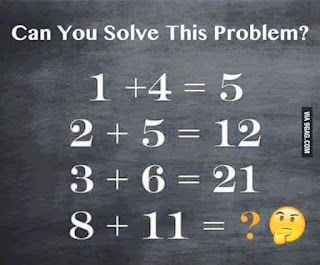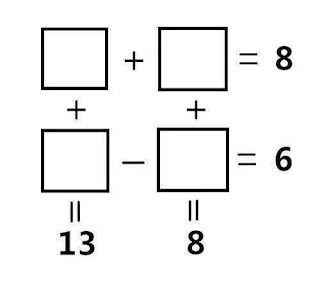what does employer look for in a interview from job seekers
Key Questions in a Job Interview - What interviewer wants to ascertain
Basically, any interviewer wants to establish 3 key things:
Think about the key skills you might need for the job you have applied for and assess your own level of expertise and experience in that context. It makes sense to identify the more specific or technical skills that your potential employer might expect as well as some more generic skills such as being a good communicator, having good IT skills, being a team player, etc. Once you have prepared for this question it will help you answer many different interview questions without getting sidetracked into talking about things that are not relevant. Remember that you want to demonstrate that you are aware of the key skills, expertise and experience required to do the job and that you have what it takes to perform it. Always go back to the key skills, expertise and experience when answering scary (and sometimes silly) questions like:
Basically, any interviewer wants to establish 3 key things:
1. Have you got the skills, expertise and experience to perform the job?
2. Are you enthusiastic and interested in the job and the company?
3. Will you fit into the team, culture and company?
However, during the job interview, the interviewer might use many different questions and angles to get to the answers. If the interviewer doesn’t get what he or she wants from one question, they might ask them in different ways. Or they might probe from different angles to test for consistency in your answers.
Here is what’s behind these 3 questions:
1. Have you got the skills, expertise and experience to perform the job?Think about the key skills you might need for the job you have applied for and assess your own level of expertise and experience in that context. It makes sense to identify the more specific or technical skills that your potential employer might expect as well as some more generic skills such as being a good communicator, having good IT skills, being a team player, etc. Once you have prepared for this question it will help you answer many different interview questions without getting sidetracked into talking about things that are not relevant. Remember that you want to demonstrate that you are aware of the key skills, expertise and experience required to do the job and that you have what it takes to perform it. Always go back to the key skills, expertise and experience when answering scary (and sometimes silly) questions like:
· Tell me about yourself?
· What are your greatest strengths / weaknesses?
· What can you do for us that other candidates can’t?
· Why do you think you are right for this job?
· What do you think the main challenges will be? Etc.
2. Are you enthusiastic and interested in the job and the company?
Any potential employer wants to know that you are interested in the company and excited about the prospect of working there. You therefore want to demonstrate that you have researched the company, understand its strategy, current performance, structure, market position and products and that you can’t wait to join them. For most, you will have done your homework before you even applied for the job, but if you haven’t then check out the ‘about us’ section on their website and search for the latest strategy documents, annual reports, key statistics as well as the company history. Show that you know them and demonstrate your enthusiasm for the job and company. Here you might also want to think about your ambitions and how they fit into the company you have applied for. You can then use the insights for answering questions such as:
· What do you know about our company?
· What do you think our company is aiming to achieve?
· What do you know about our products and services?
· Why do you want to work for this company?
· Why do you think this job is right for you?
· What motivates you? Etc.
3. Will you fit into the team, culture and company?
This final key question is about your personality and your style and how you as a person fit into the team and culture of the company. Companies have different cultures, which translate into different ways of behaving and working. It is important to make sure you fit in and don’t feel like a fish out of water. In fact, it is important for the company as well as for you. Again, hopefully you will have done some research prior to applying for the job. Sometimes, it can be tricky to find detailed knowledge about the company culture, in which case you simply talk about your assumptions and why you feel you fit in.
Once you have done this you can use it to answer questions such as:
- How would you describe your work style?
- How would you describe yourself?
- How would your colleagues describe you?
- What makes you fit into our company?
- What makes you a good team member?
- If you were an animal, what animal would you be?
- Etc.
Here is a eloberate List
Question 1 Tell me about yourself.
TRAPS: Beware, about 80% of all
interviews begin with this “innocent” question. Many candidates, unprepared for
the question, skewer themselves by rambling, recapping their life story,
delving into ancient work history or personal matters.
BEST ANSWER: Start with the present and tell
why you are well qualified for the position. Remember that the key to all
successful interviewing is to match your qualifications to what the interviewer
is looking for. In other words you must
sell what the buyer is buying. This is the single most important strategy in
job hunting.
So, before you answer this or any
question it's imperative that you try to uncover your interviewer's greatest
need, want, problem or goal. To do so, make you take these two steps:
1.
Do all the homework you can before the interview to
uncover this person's wants and needs
(not the generalized needs of the industry or company)
2.
As early as you can in the interview, ask for a more
complete description of what the position entails. You might say: “I have a number of
accomplishments I'd like to tell you about, but I want to make the best use of
our time together and talk directly to your needs. To help me do, that, could
you tell me more about the most important priorities of this position? All I know is what I (heard from the
recruiter, read in the classified ad, etc.)”
Then, ALWAYS follow-up with a second and possibly, third question, to
draw out his needs even more. Surprisingly, it's usually this second or third question that unearths what the interviewer is most looking for. You might ask simply, "And in addition to that?..." or, "Is there anything else you see as essential to success in this position?:
This process will not feel easy or natural at first, because it is easier simply to answer questions, but only if you uncover the employer's wants and needs will your answers make the most sense. Practice asking these key questions before giving your answers, the process will feel more natural and you will be light years ahead of the other job candidates you're competing with.
After uncovering what the employer is looking for, describe why the needs of this job bear striking parallels to tasks you've succeeded at before. Be sure to illustrate with specific examples of your responsibilities and especially your achievements, all of which are geared to present yourself as a perfect match for the needs he has just described.















































